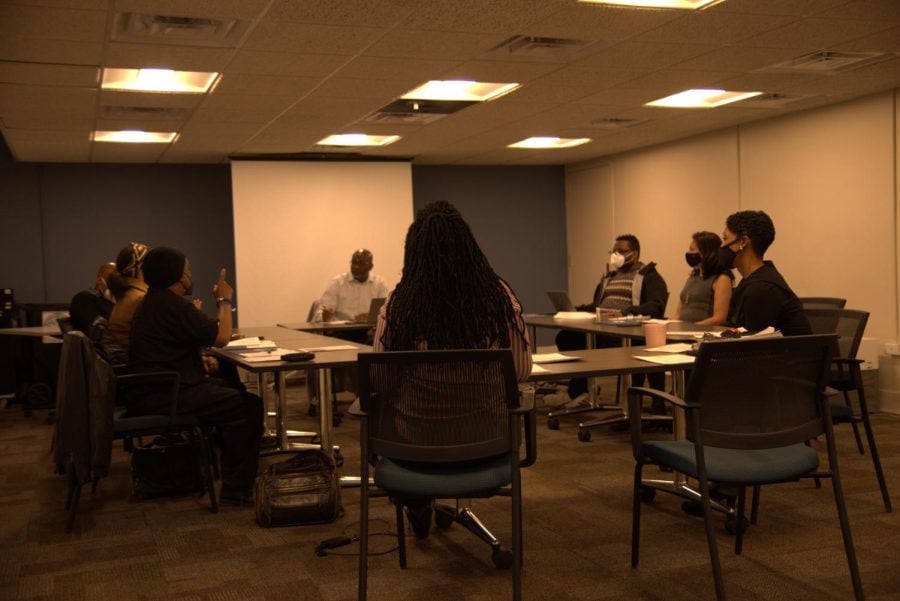Reparations Committee talks next steps for Restorative Housing Program
Alex Harrison/Daily Senior Staffer
Evanston’s Reparations Committee. At a meeting Thursday, committee members discussed the next steps for the city’s Restorative Housing Program.
March 4, 2022
Evanston’s Reparations Committee reviewed next steps for the Restorative Housing Program Thursday, including meetings with recipients for orientation, providing supplementary benefits from other programs and addressing potential tax implications.
Interim Parks and Recreation Director and committee staffer Audrey Thompson said city staff met privately with nine of the first 16 recipients for program orientation. This includes reviewing the program’s guidelines, explaining how their benefits will be managed and asking how the recipient will spend their benefit across their three options: home purchase, mortgage assistance and home improvement.
Because all of the initial recipients are senior citizens, Thompson said private orientation meetings have been useful for answering their questions in detail.
“We are literally able to go through every page of the documents and explain, and have them ask questions that they might not ask if they were in a group of 16,” Thompson said.
Thompson said recipients are using their benefits flexibly. Three recipients plan to spend their $25,000 on both mortgage assistance and home improvement, and one wishes to transfer their benefit to their son.
The committee also discussed other city and nonprofit programs recipients can apply to in order to supplement the primary reparations benefit.
Restorative Housing Program recipients can receive free home repair services from nonprofit home improvement organization Rebuilding Together North Suburban Chicago, thanks to a grant from the Evanston Community Foundation.
Three of the first 16 recipients also signed up for the Benefit Card Program, which gives subsidized transit, a discounted wheel tax and free home repair services, among other assistance to low-income seniors in Evanston.
Committee member Claire McFarland Barber said the committee should inform all future reparations recipients of supplemental resources they’re currently eligible for.
“Number 20 should not have to wait to know that they qualify for the Evanston Benefit Card,” Barber said. “There are programs that we could let them know about and help them to sign up for.”
The city is waiting for all 16 initial recipients to complete orientation and confirm details on selected benefits before paying the reparations benefits.
Corporation Counsel Nicholas Cummings said the city hired Black-owned tax firm Tax Law Offices Inc. to research if reparations benefits will create tax liabilities for recipients, since the value of paying off a mortgage or completing repairs could be counted as income.
He said the primary issues the firm will research are the potential tax liabilities of the Restorative Housing Program and direct cash payments, as well as the implications any reparations benefit would have on entitlement programs like Social Security.
“Hopefully by the next Reparations Committee meeting, I will have those three opinions in writing,” Cummings said. “So we will have an opportunity for everyone to understand that we are trying to design programs that will not have tax liability on people who are receiving.”
The committee’s next meeting is scheduled for April 7 at 9 a.m.
Email: [email protected]
Twitter: @alexhairysun
Related Stories:
— “Moving forward with tangible repair”: First recipients selected for Evanston reparations program
— Third-party intermediary to disperse first reparations funds
— Reparations Committee discusses prioritization and selection process for Restorative Housing Program


